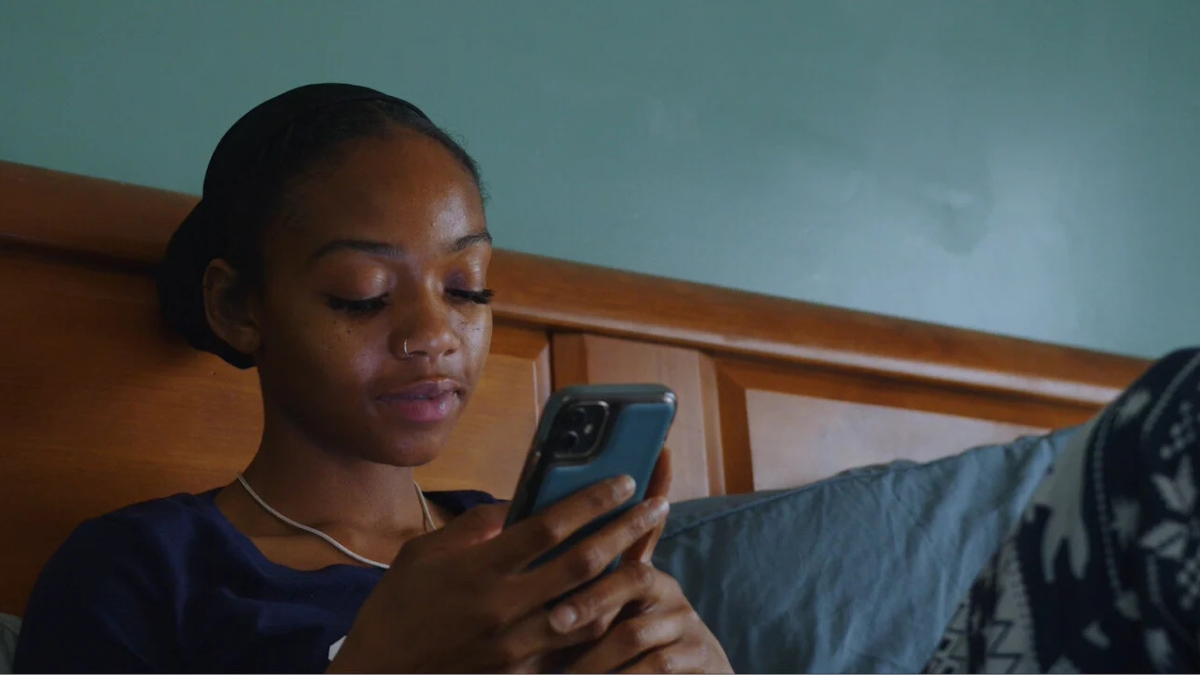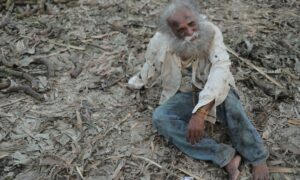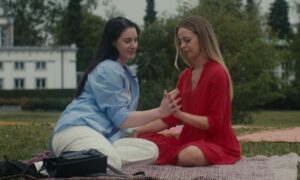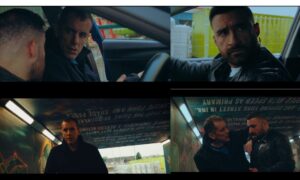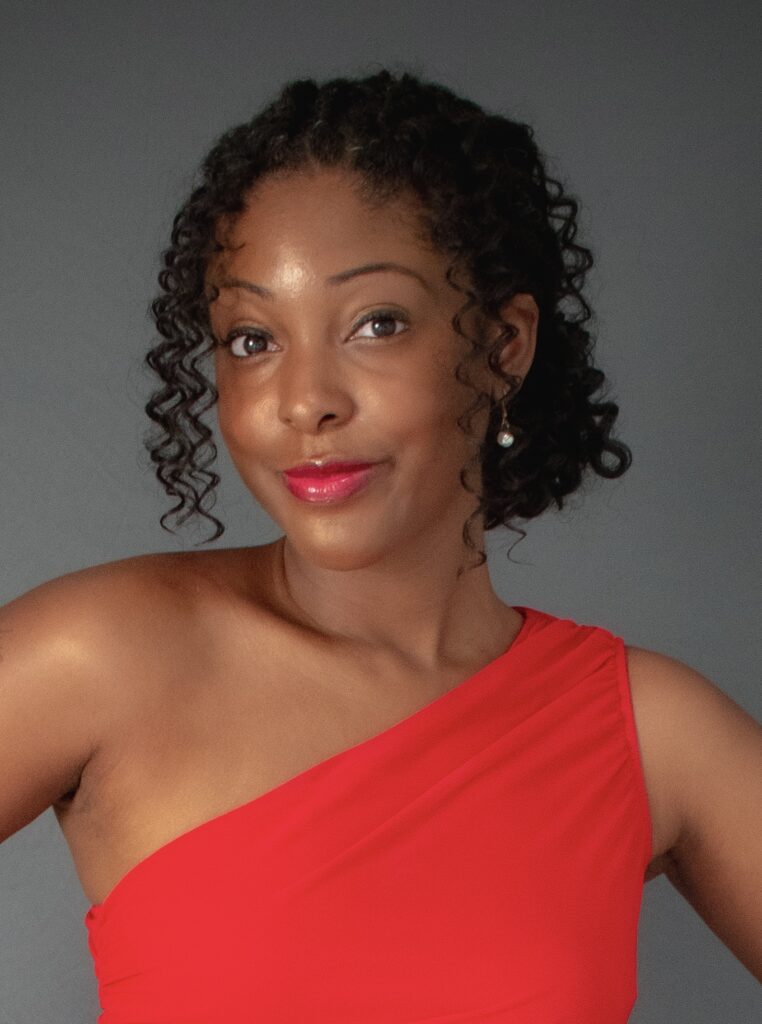
1. What was your inspiration behind Chronically Online?
Audra Davison: After about a year of struggling with creative block and turning to different forms
of social media to cope, I had enough. I realized that instead of developing creative content, all of my energy, or moreover, my creative energy, was spent watching other people’s content. I was essentially chronically online. After talking to a few of my other creative friends, I noticed that many of them were
feeling similarly, post our college graduation. Not only was social media a great way to cope with (or rather distract from) creative block, but the transition from college to the “real world” was challenging, especially with everything that’s going on socio-economically. This is where the idea of Chronically Online was born: An unemployed college graduate and artist struggling to produce creative content who turns to social media to cope in a world where the media can consume you too.
b. Spoiler alert, the idea of my protagonist getting “sucked into” her phone comes from an episode of Rod Sterling’s Twilight Zone (1959). It’s called The Sixteen- Millimeter Shrine. It’s about a forgotten movie star of the 1930s who watches her old movies on a projector to re-create the feeling she had during the peak of her career. At the end of the episode, she leaves reality, goes into the projector, and lives in an alternative realm where she can stay in a cinematic universe at her career’s prime.
2. How did you approach directing, editing, and producing the film simultaneously?
Audra Davison: Directing, editing, and producing Chronically Online was always my preferred way of tackling this project. It’s not my first time operating in these three positions on a film, so I did have some experience before we started pre- production. I was the director, editor, and producer of my films, Green and The Hale Academy. Green is a documentary that was created during the pandemic, so everything was done virtually. The Hale Academy, a film about students at a magical Historically Black College, is an animation that was also developed virtually during the pandemic. So, while I was no stranger to producing and editing my own film, Chronically Online was my first time directing in-person,
post-pandemic. It was such an amazing experience to be on set with my cast and crew and watch this project come to life in real time.
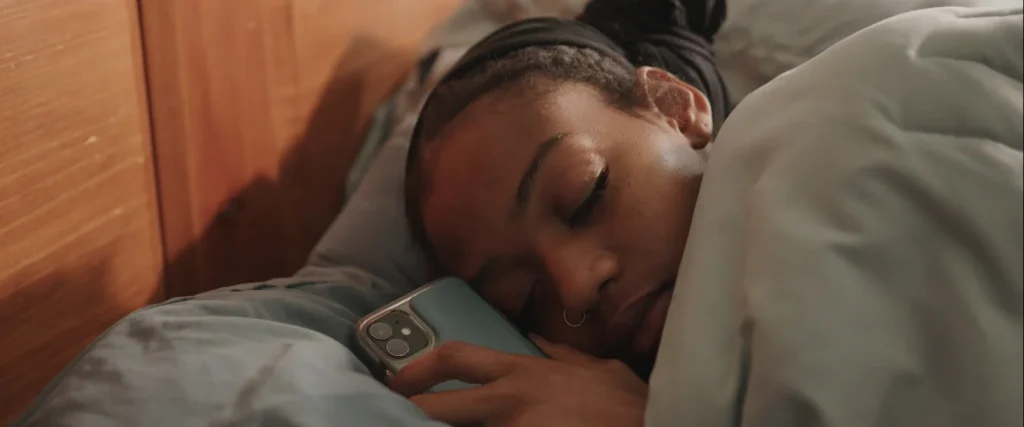
3. What challenges did you face in the editing room while shaping the story?
Audra Davison: While editing the film, I was mainly operating on an older computer. So, when it came to color correction, I had to use my brother and editor’s assistant, Robert Davison IV’s, computer. I am so thankful to him because the film would look one way on my laptop, and I’d think the lighting was perfect. But after double-checking on his computer, the lighting seemed all wrong. So, having access to his laptop definitely helped to fine-tune the film.
4. How did winning Best Female Filmmaker’s Film, Best Female Director, and Best Editor impact you?
Audra Davison: I discovered that I was the Best Female Filmmaker, Best Female Director, and Best Editor for the July Direct Monthly Online Film Festival just days before I graduated from my Master of Fine Arts in Narrative Media Writing program at the University of Georgia. It was such great news that added to what was already a great week. Considering this is my first time serving as a director on a live-action (or rather in-person) set, winning the Best Female Director award was gratifying. On the day of the shoot, when we were close to wrapping, some of my crew members were surprised and mentioned that I seemed like a natural. And when I was operating as this project’s director, I felt like I was walking in my purpose. Have you ever felt like you were meant to do something? That’s exactly how I felt while directing this film, and I can’t wait to do it again in the future. I’ve always loved editing videos together, even just for quick Instagram or TikTok posts. Since I first learned how to edit, I’ve discovered so many new software and different ways to pull content together. I implemented this new knowledge in the editing room for Chronically Online. So, receiving the Best Editor award is just so rewarding. And it is truly an honor to win the Best Female Filmmaker’s Film award. I just hope Chronically Online can inspire future women filmmakers to create their content. All of these awards help me feel more solidified in my craft as a whole, so thank you Direct Monthly Online Film Festival.
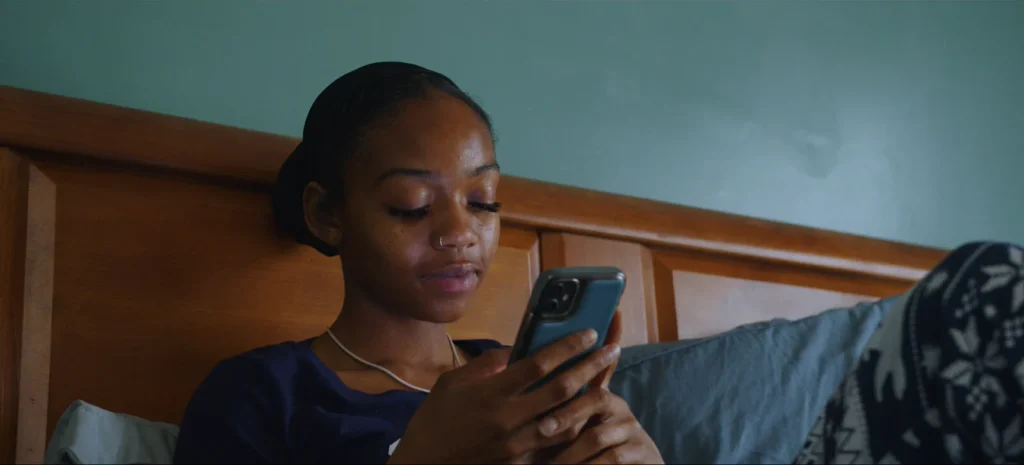
5. How did the themes of being online influence your storytelling?
Audra Davison: I think losing track of time is a huge element that comes with being online excessively. In the film, the protagonist, Ashley, loses track of hours at a time and often forgets to eat because her eyes are glued to her phone. Social media is a great escape for Ashley, and I think that this may be true for many of us. I know it’s true for me sometimes. Another small element that comes with being chronically online, which I incorporated in the film, is being invested in celebrity and influencer culture. Ashley receives several blog updates about a celebrity couple. Ashley is also a visual artist who is invested in the content of social media influencers who make a living off of selling their art. Her interest in these influencers and celebrities juxtaposes her lack of interest (or enthusiasm) in creating her artwork and investing in her own life. She’s living vicariously through the influencers and celebrities. I think for a while I personally turned to social media to dissociate and distract myself from actually creating my own content. Sometimes, I still do. Disassociation through social media is something I realized that many of my creative friends struggled with as well.
6. What message do you hope the film conveys about the digital age?
Audra Davison: I hope the film entices creatives to stay consistent in their content creation in whichever way feels most authentic to them. I hope it encourages them to “snap out of it” and not allow the media to consume them. I hope that creatives can watch Chronically Online and be reminded that they have the power to create content, too.
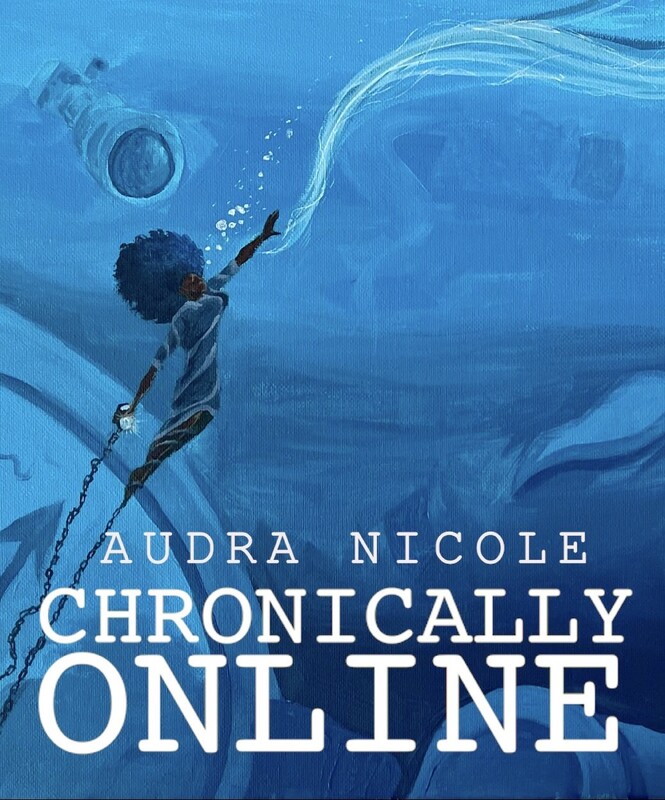
7. Can you discuss any key moments that shaped the film’s direction?
Audra Davison: After completing the editing process, I took a two-week hiatus from the project; I even started submitting to several film festivals because I thought I was done. But whenever I watched the film, there was something off about it that I could never put my finger on. Finally, I realized that in two tiny sections of the film, I needed to add layers of suspenseful music to help drive the point forward that the phone is the antagonist here.
8. How did you work with your team to bring your vision to life?
Audra Davison: I’d like to take this time to thank and shout out my amazing cast and crew. Special thanks to Dariae Willis, my creative producer, who connected me with most of my crew. Working with my photography director, Anthony Hudson was an honor. As soon as he read the script, he immediately understood the vibe I was going for with Chronically Online. He and I collaborated on the perfect shot list in the weeks leading up to the shoot day. And then, on set, it was nice to bounce ideas off each other to develop what was best for the film overall. I also had an AWESOME assistant director, Ciara Franklin, who truly helped to keep us on schedule and ensured that the cast had everything they needed. Speaking of the cast, they were just outstanding! Toniraye Moss, the actress who played Ashley’s mother, actually flew in out of town to shoot her scenes; her dedication to her craft was/is out of this world. Cole Jackson-Porter, who played Ashley’s brother, came up with nice ideas that really added layers to his character. And Kynnedi Spratt, our lead, absolutely crushed it with how she portrayed Ashley. When I saw her audition tape, I knew Kynnedi was the one. She and I were on the same page when it came to a lot of Ashley’s dialogue and her gestures. We could finish scenes in just two or three takes because Kynnedi could take my direction seamlessly and already had a great understanding of the character. I’m also thankful for Renair Jackson, my script supervisor, who had no previous experience with script supervision. But she did a fantastic job and made my editing job ten times easier when it came time for it. Renair was also the music supervisor for this project. I also want to thank Jabari Yemonja-Olukun, who was in charge of audio capture, and my camera assistants, Demarcus Hurst and Dominique Morris. And finally, I want to give a shout out to the artist who created all of the artwork for Chronically Online, Solomon Thorpe. His talent is out of this world. He really brought each of the drawings and paintings to life and truly conveyed my protagonist’s internal struggles. My entire cast and crew were phenomenal, and I could not have produced this film without every one of them.
9. What advice would you give to aspiring female filmmakers?
Audra Davison: The advice I’d give to aspiring female filmmakers is to keep creating content and don’t ask for permission to do so. The world is waiting to hear your individual stories, so don’t deprive us of your content.
10. What’s next for you after Chronically Online?
Audra Davison: I’m starting a Youtube Channel where I’ll be showcasing all of my films, audiobook versions of my short stories, scripts, and more. It’s called Audra’s Creative Realm. And I plan to premiere Chronically Online on the channel on September 27 (If you’d like to watch it sooner, it is also available now on Amazon’s Prime Video).

